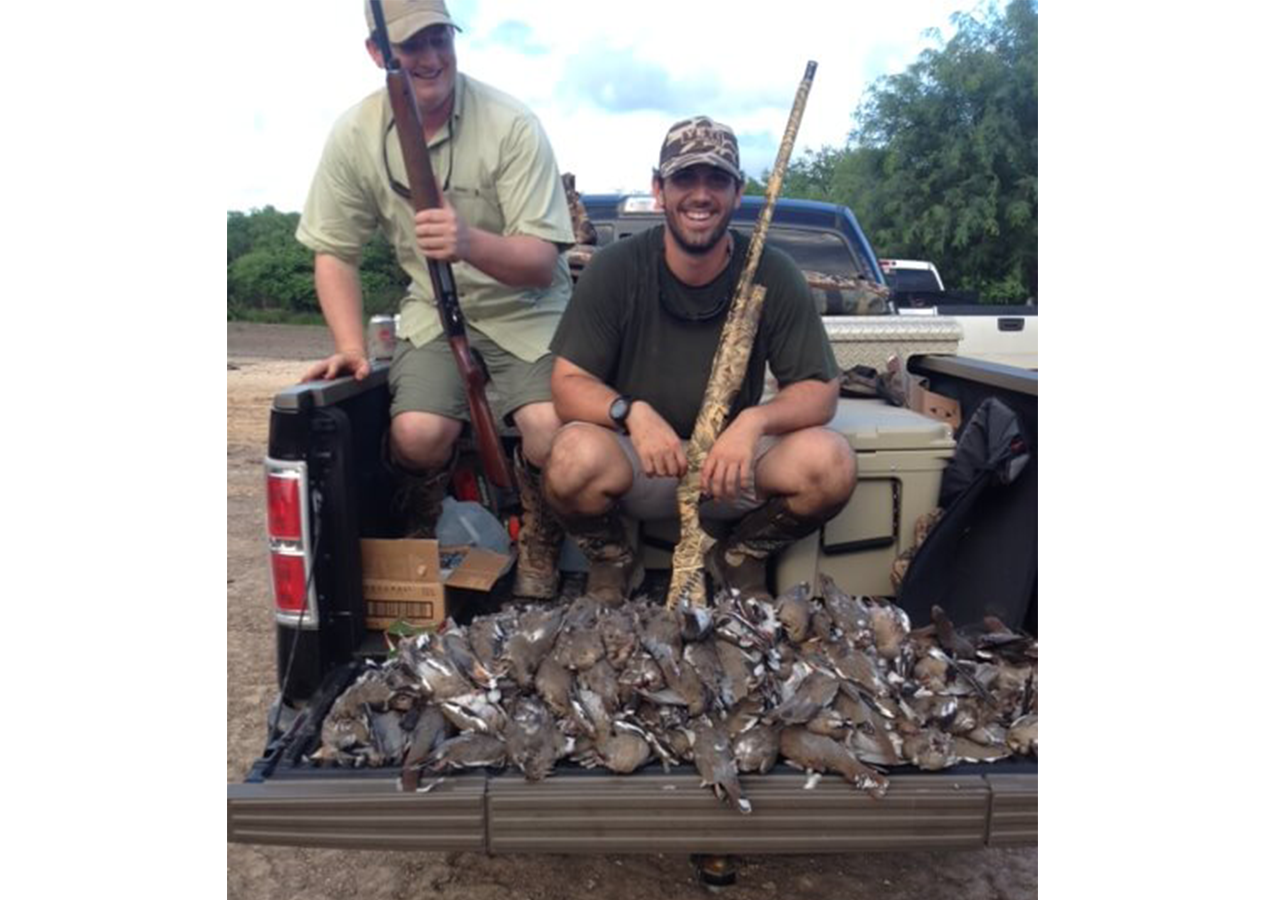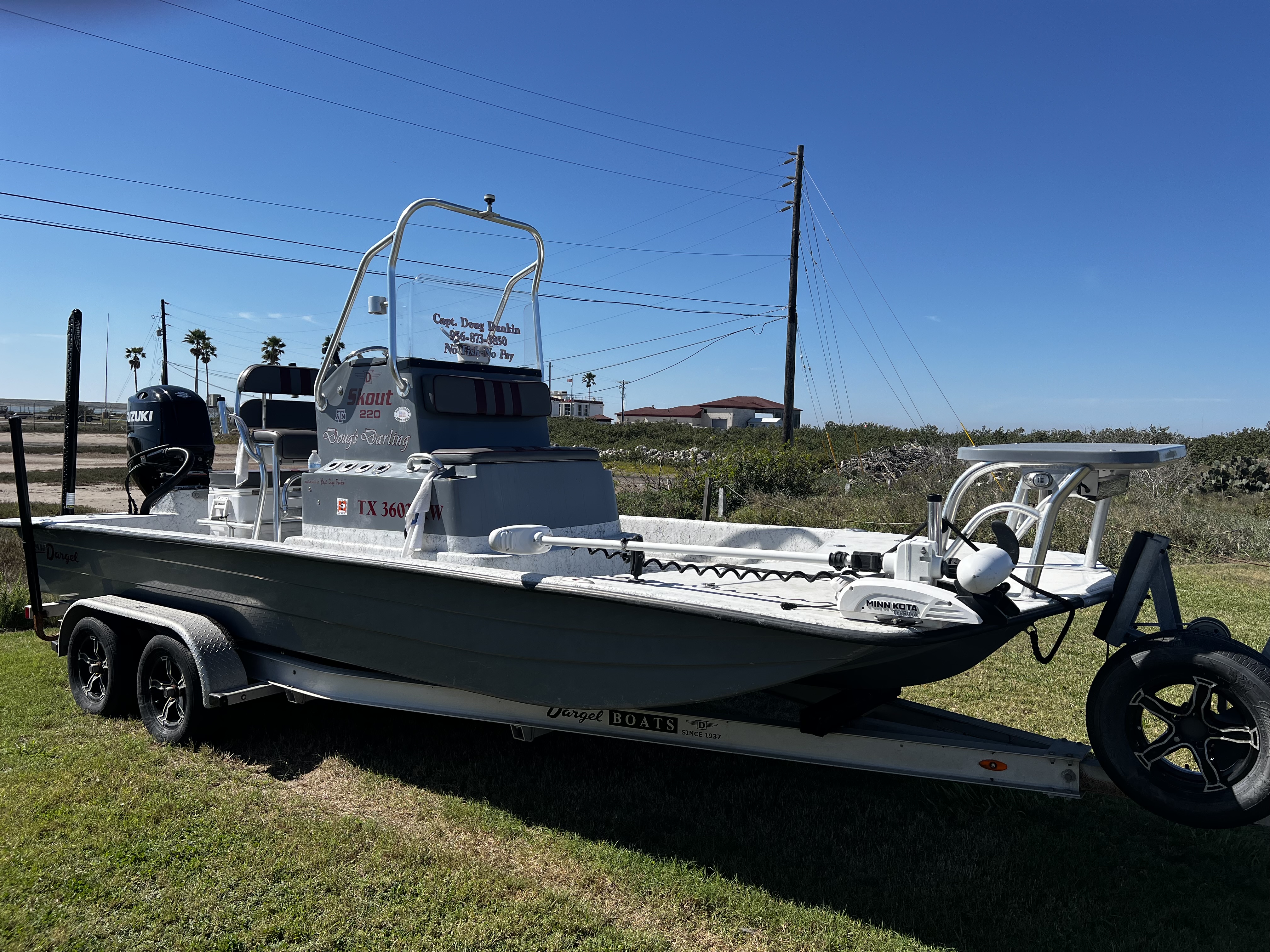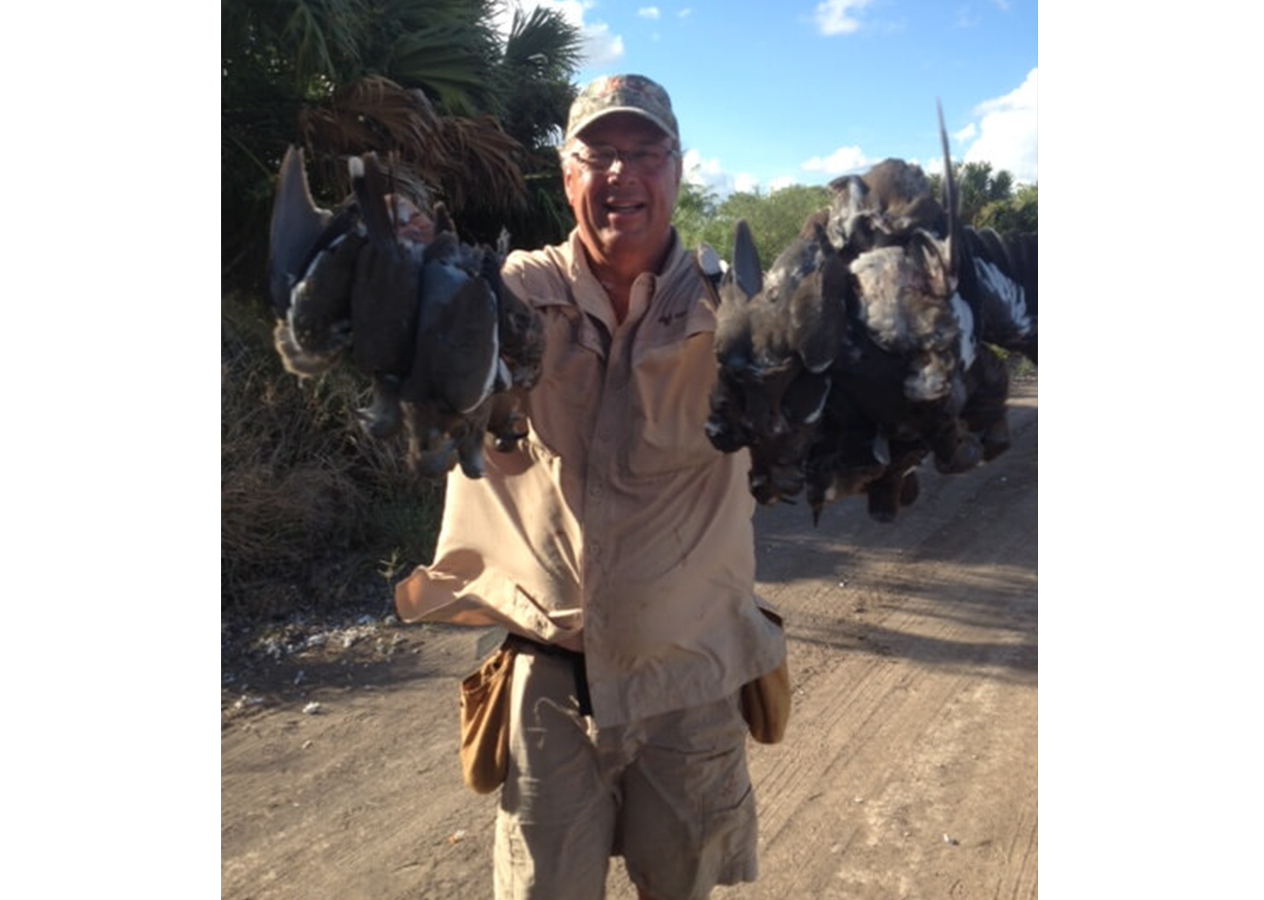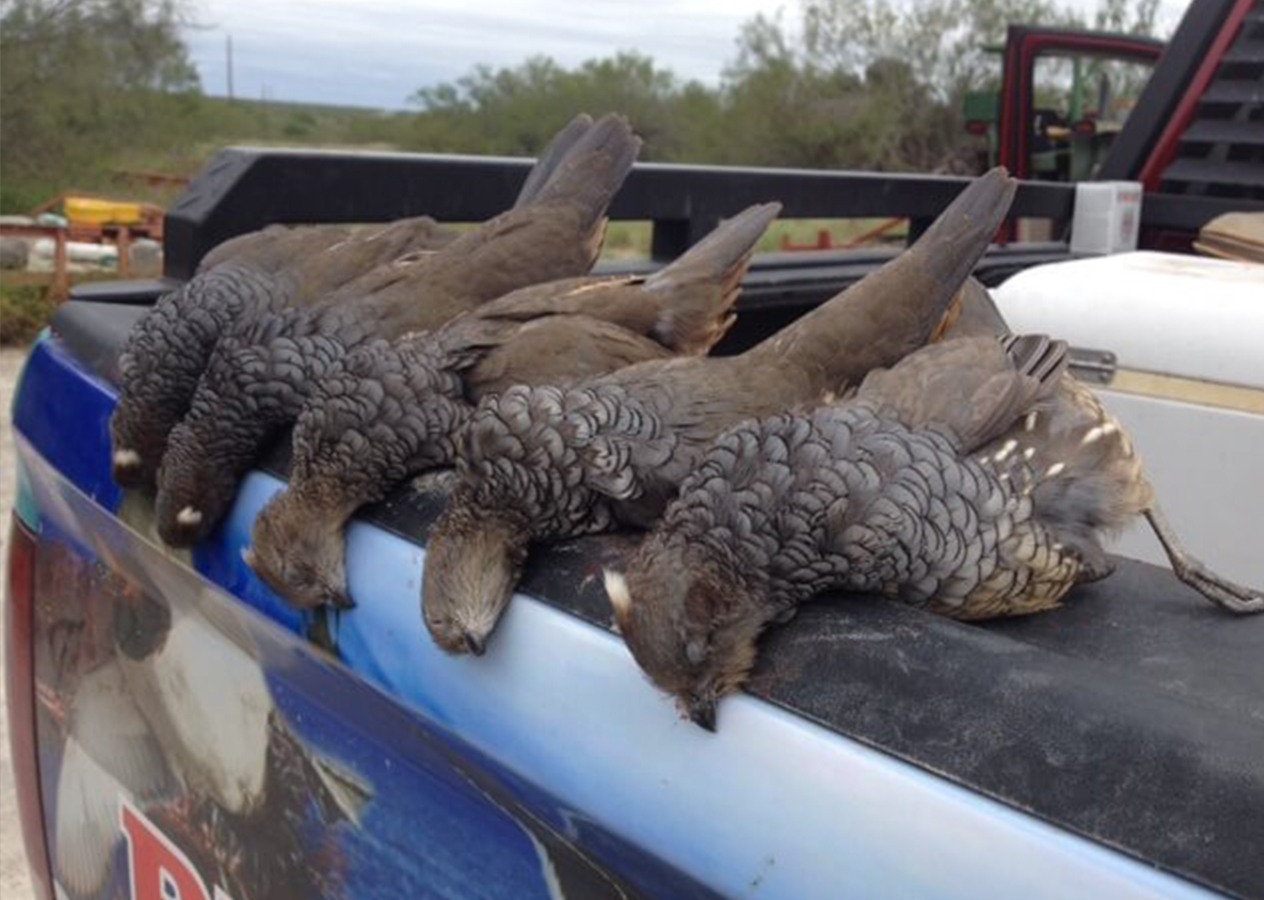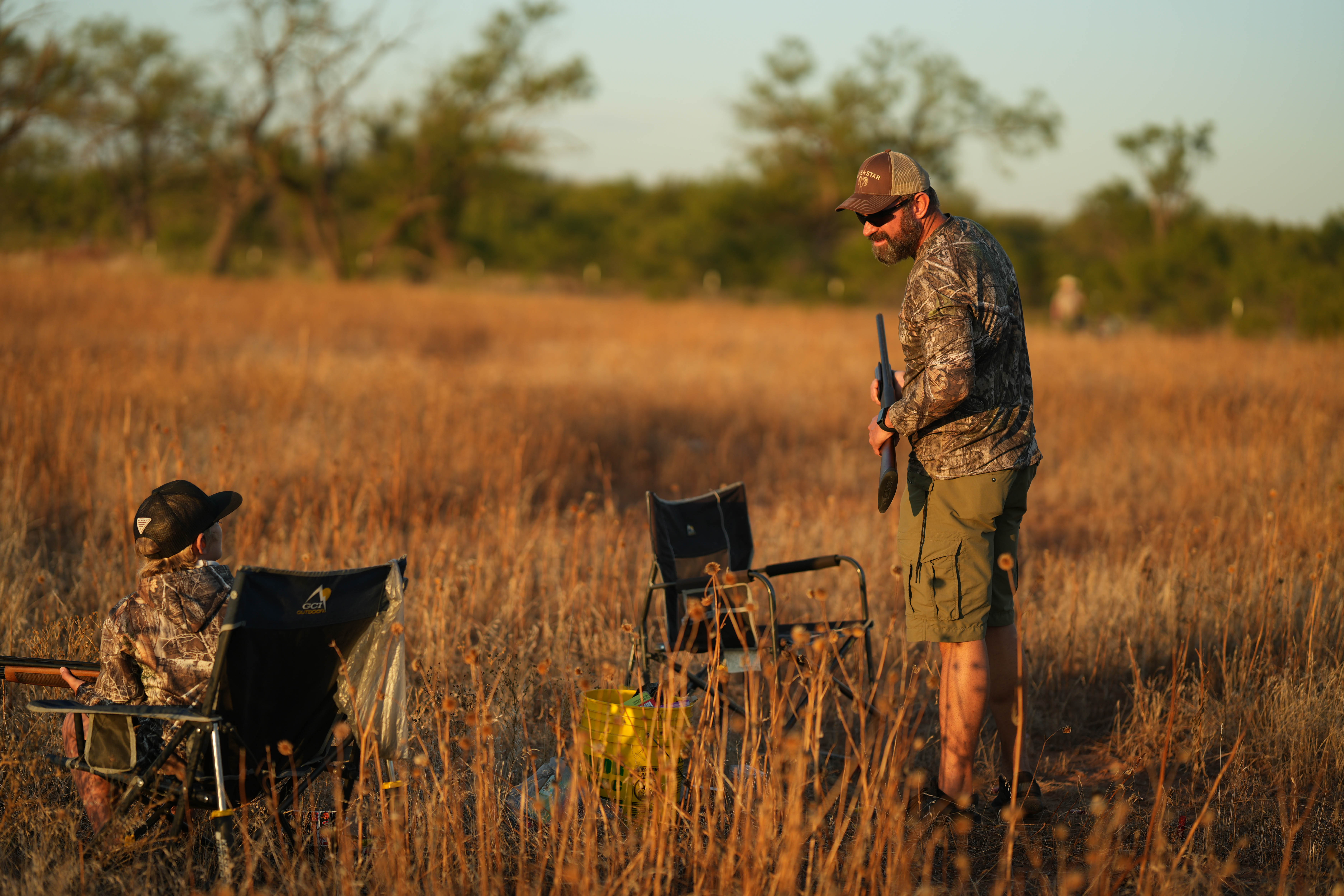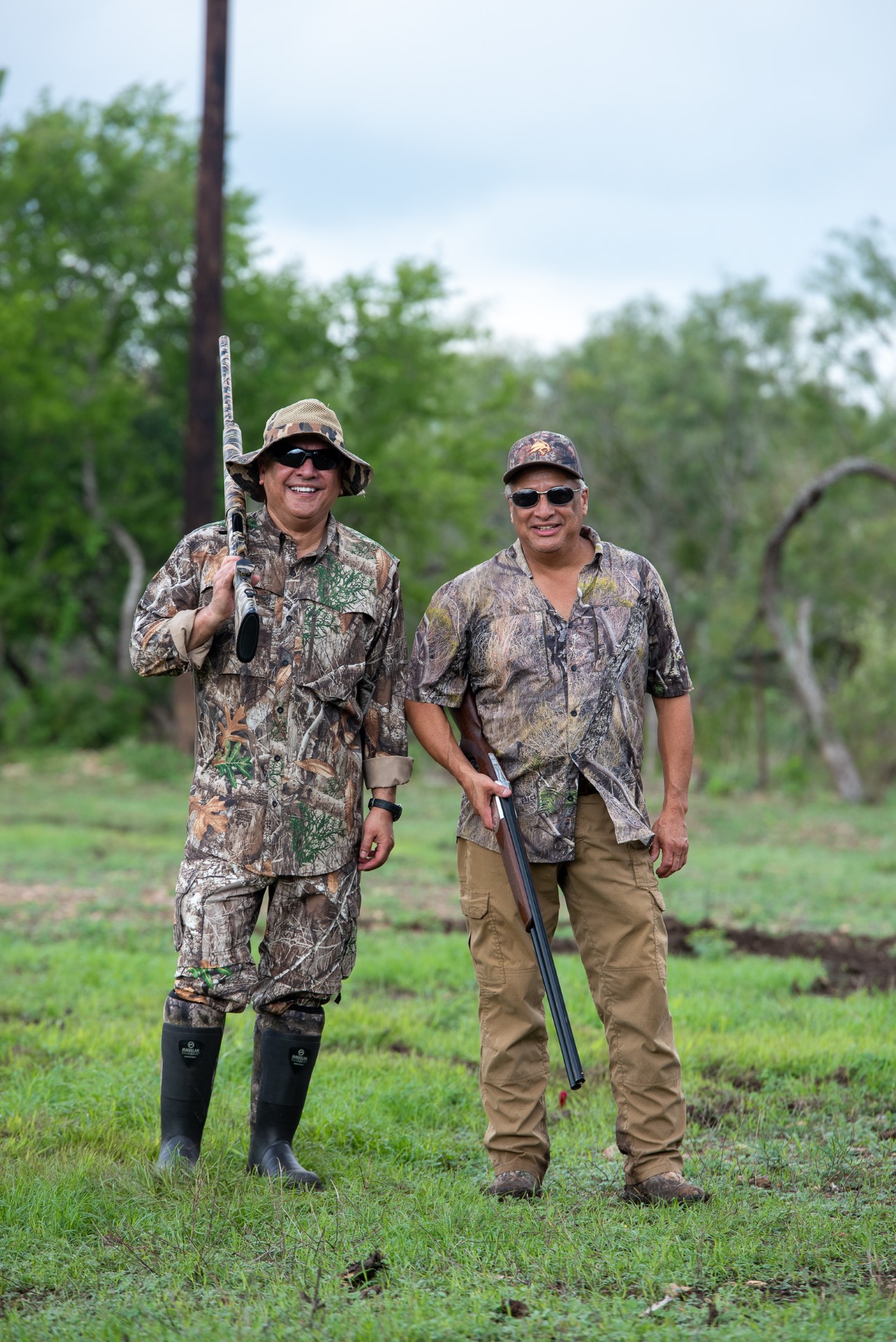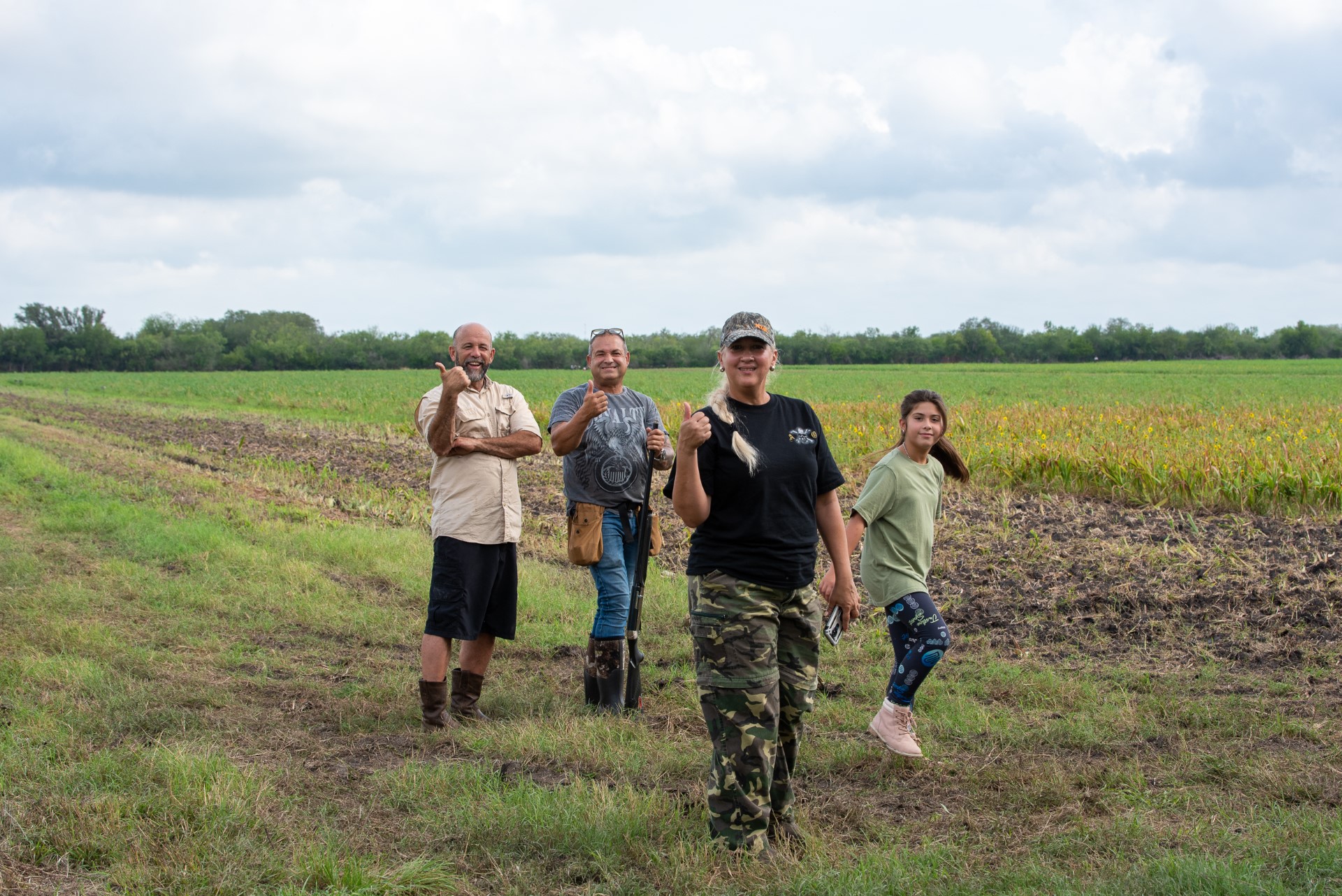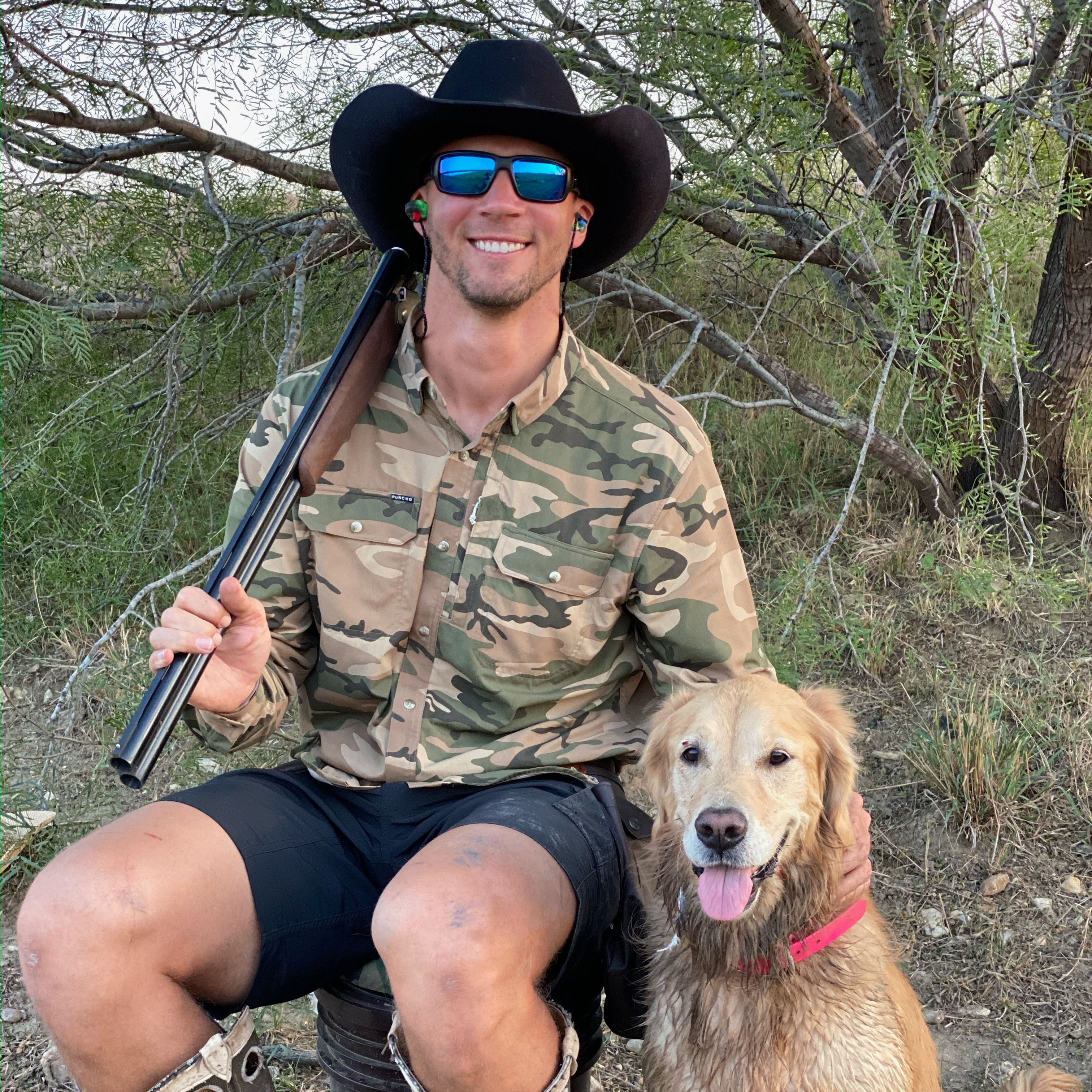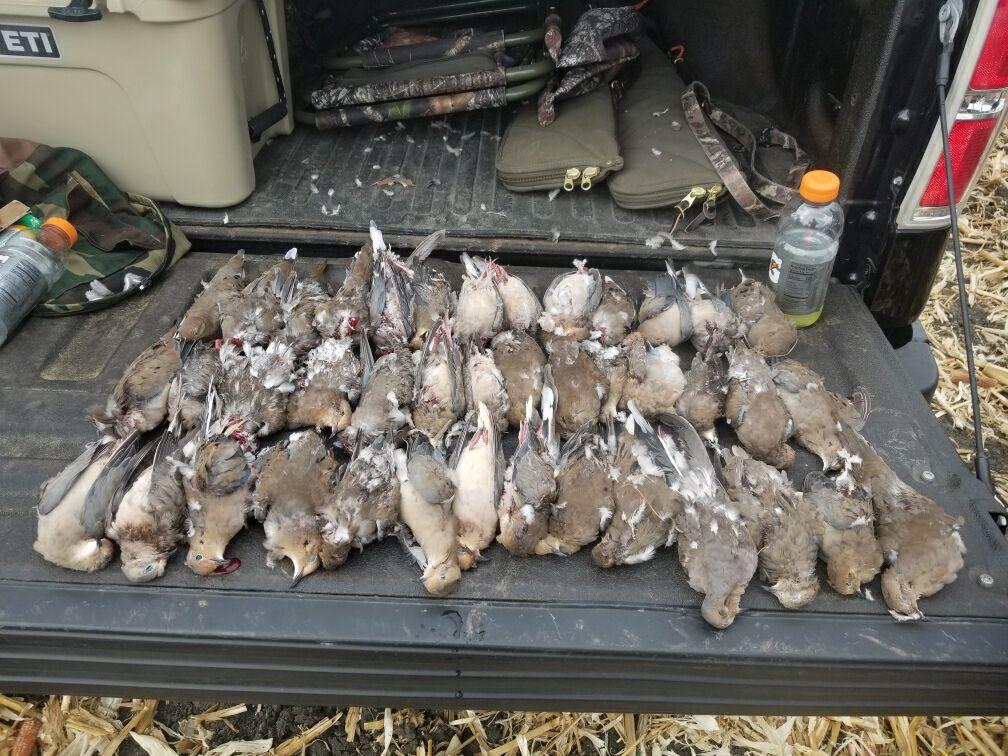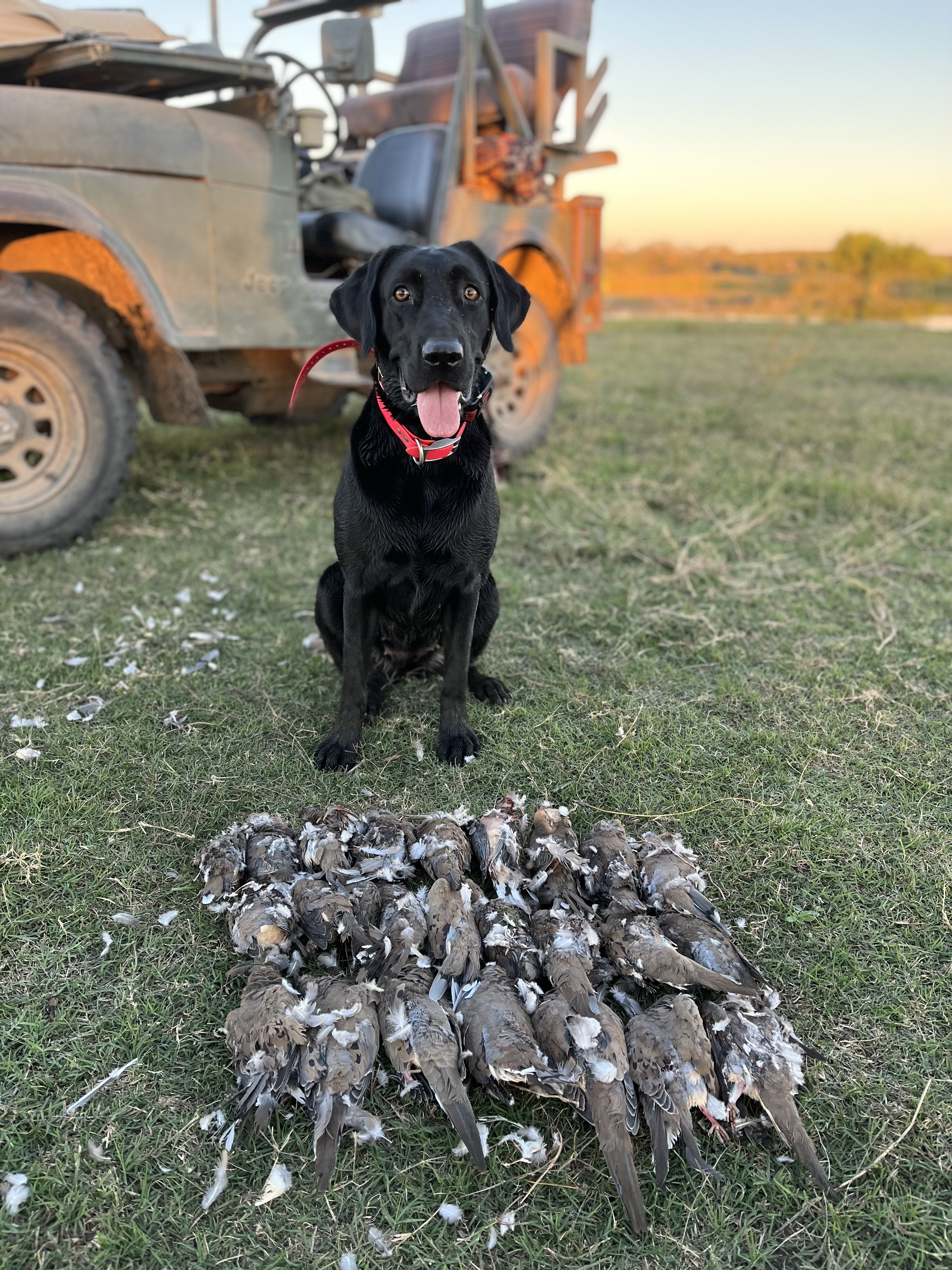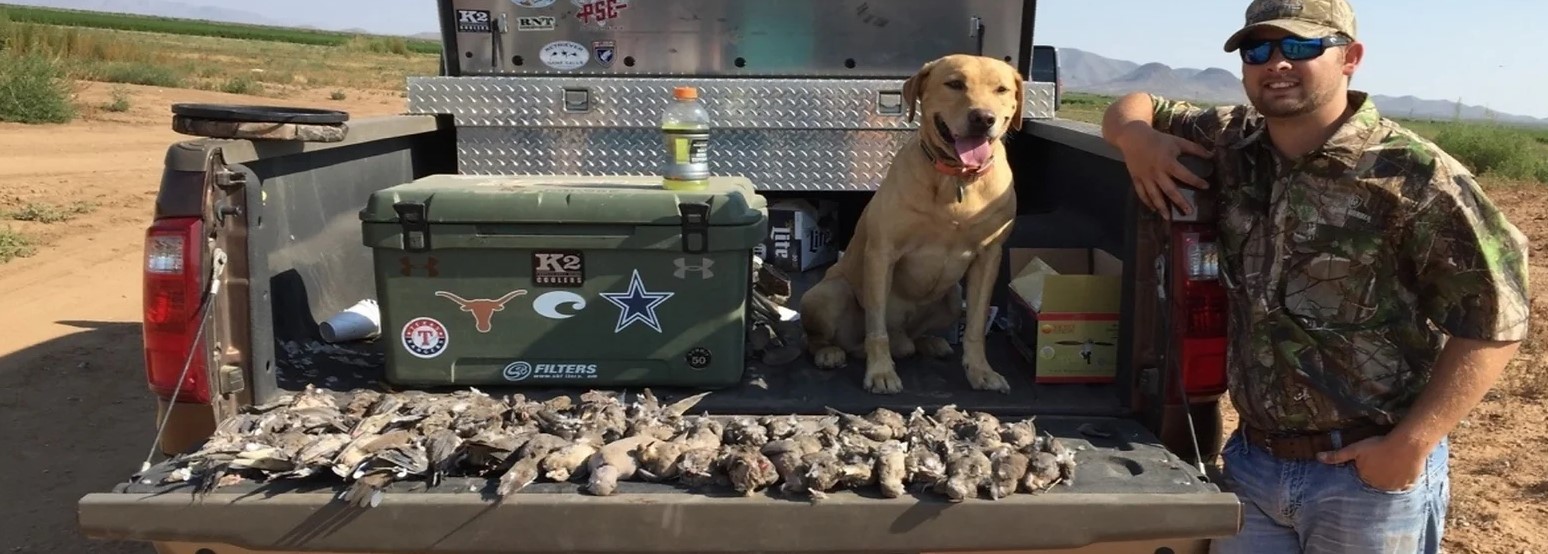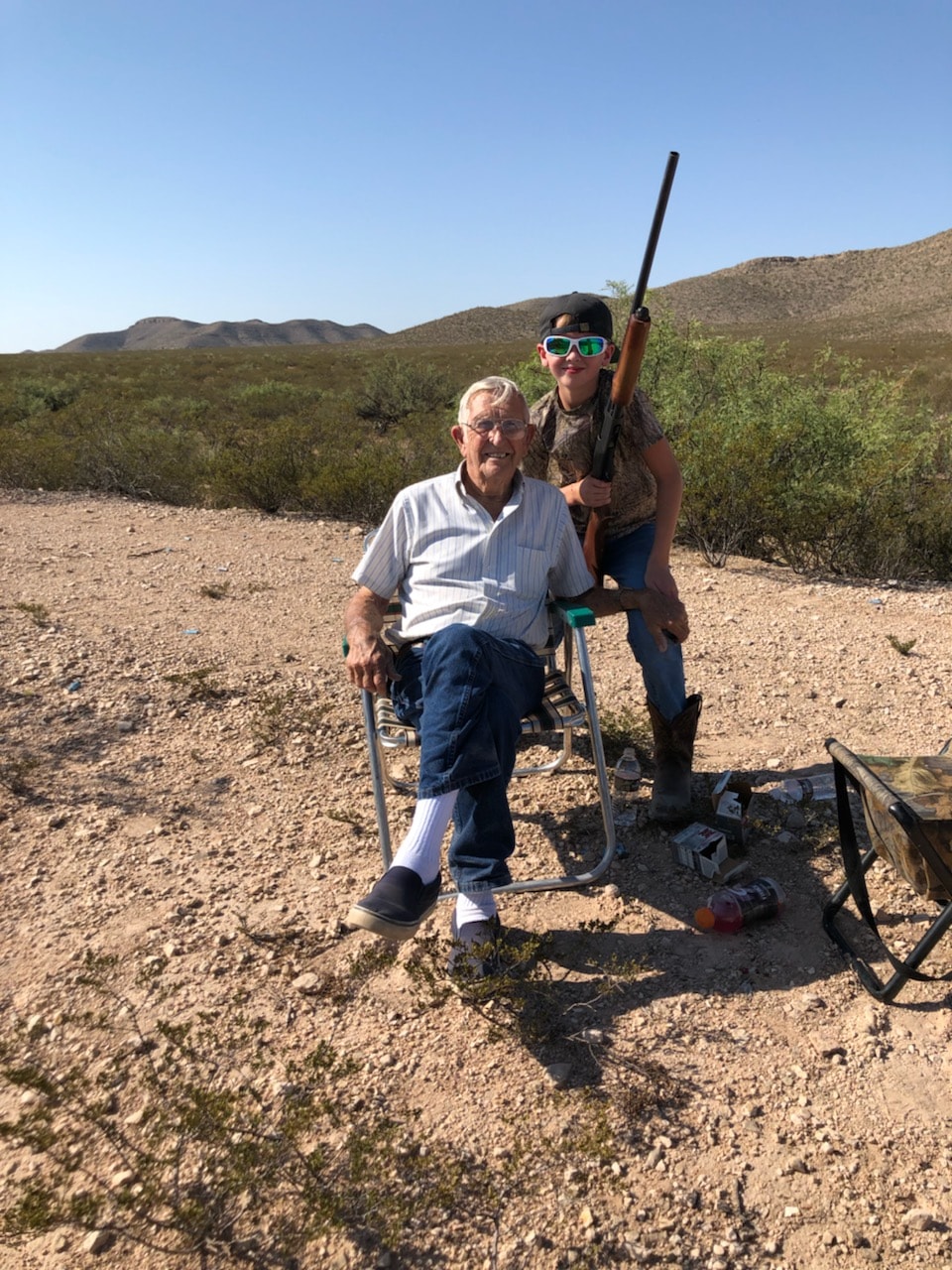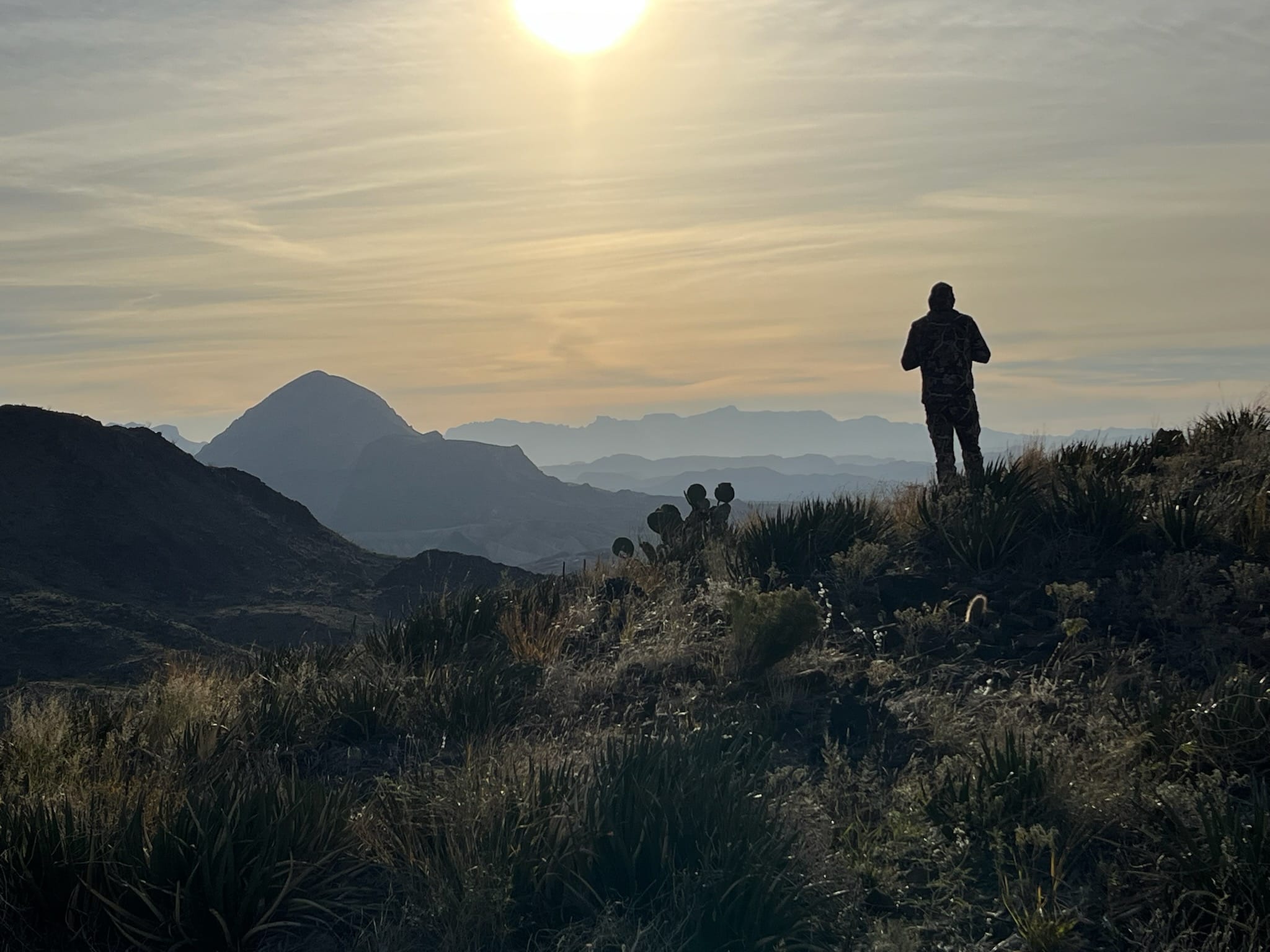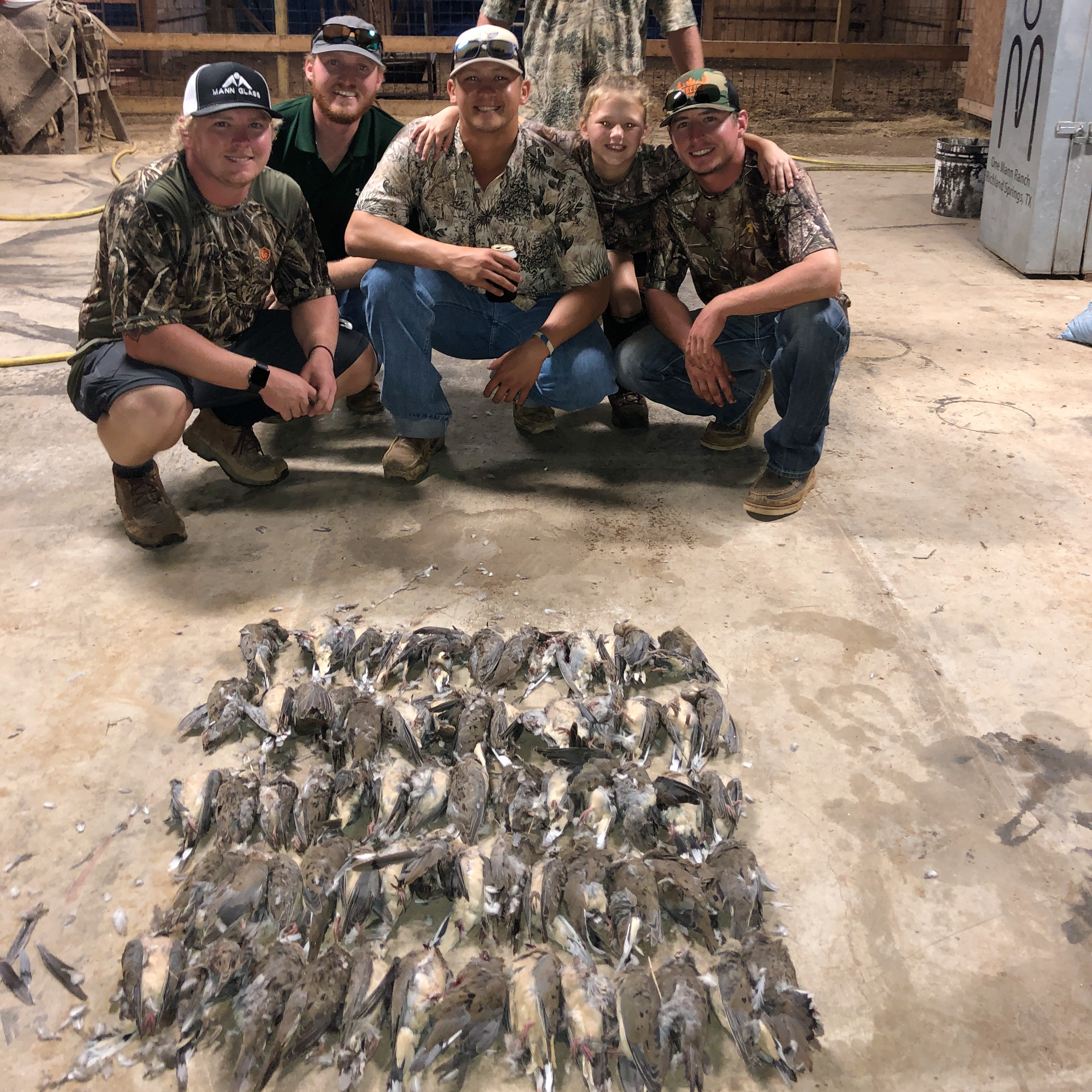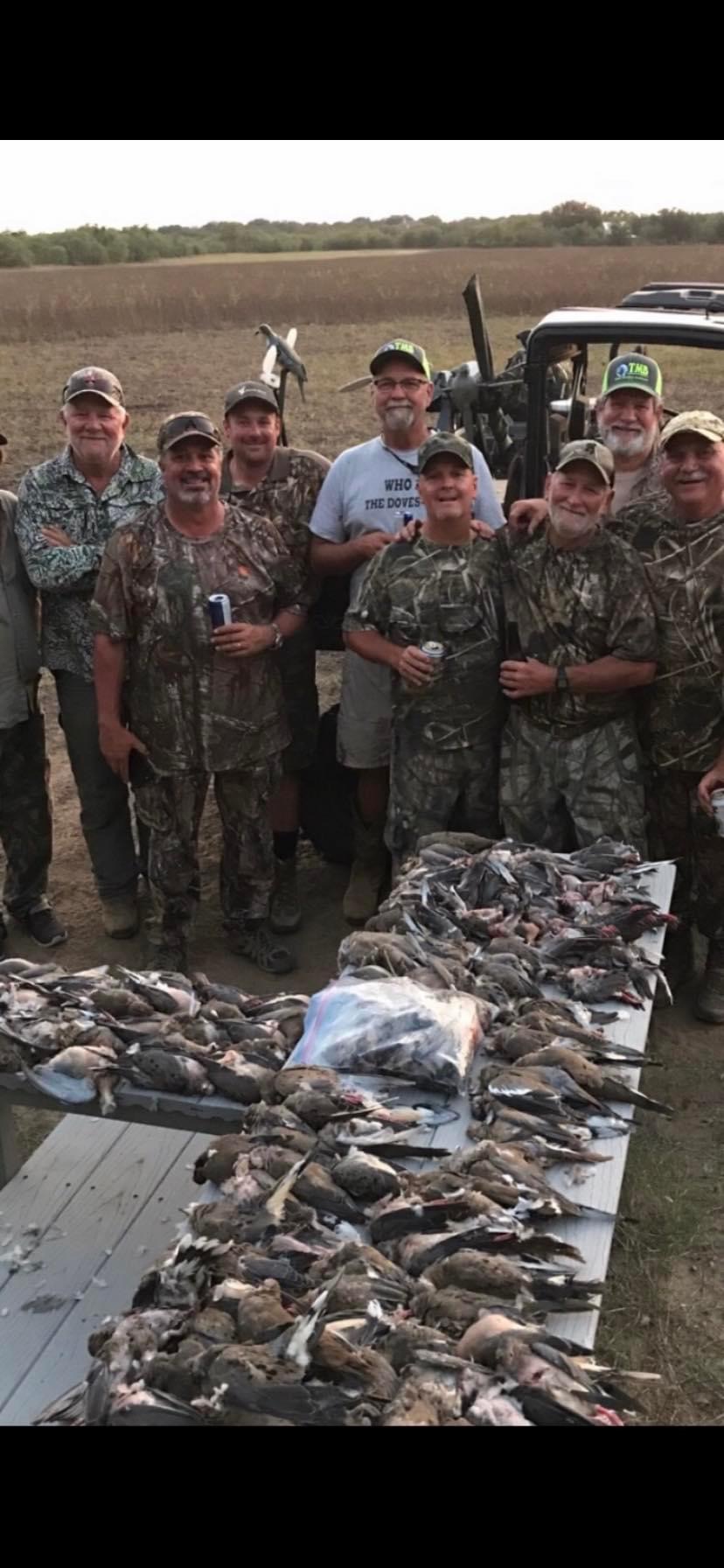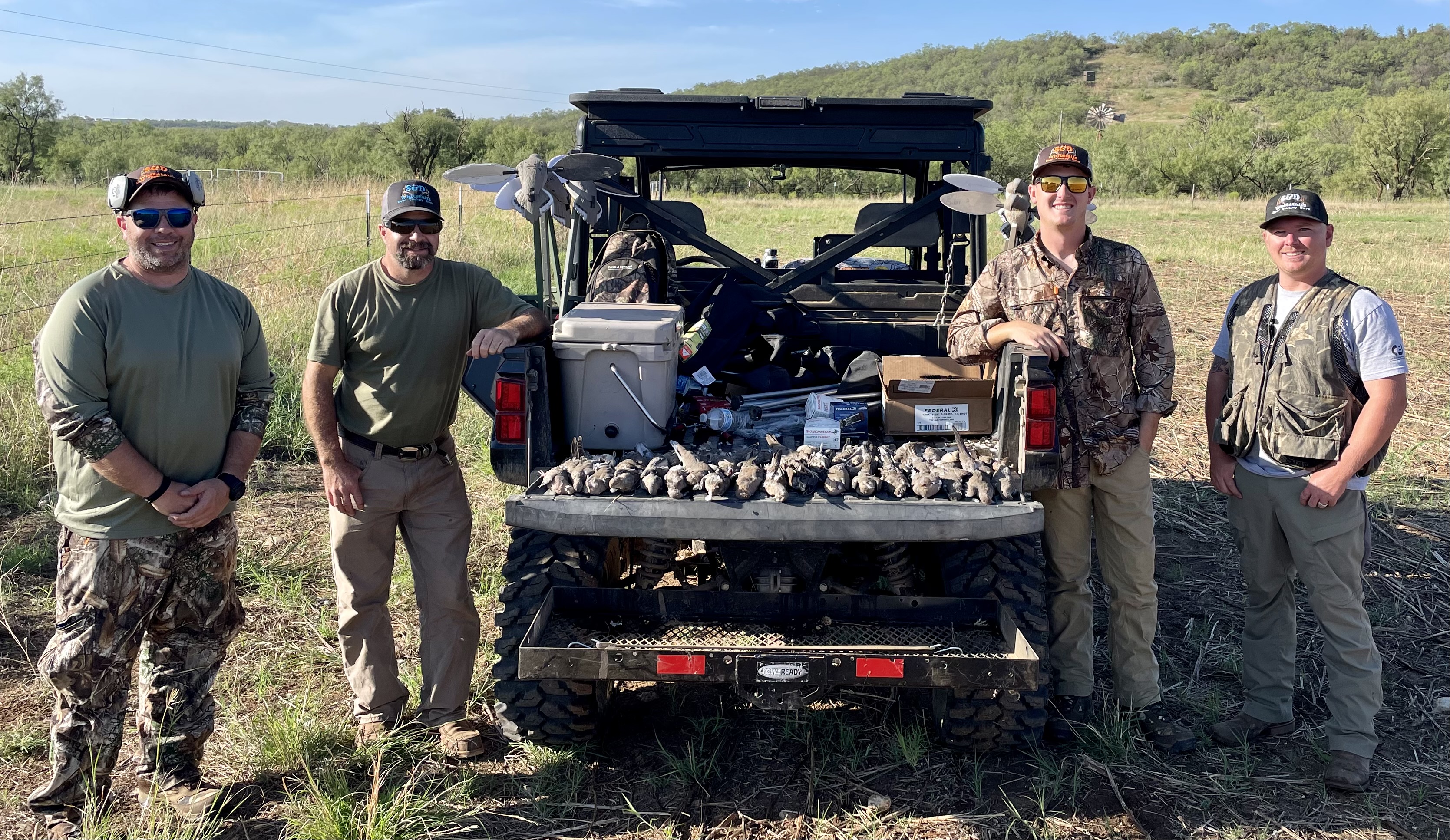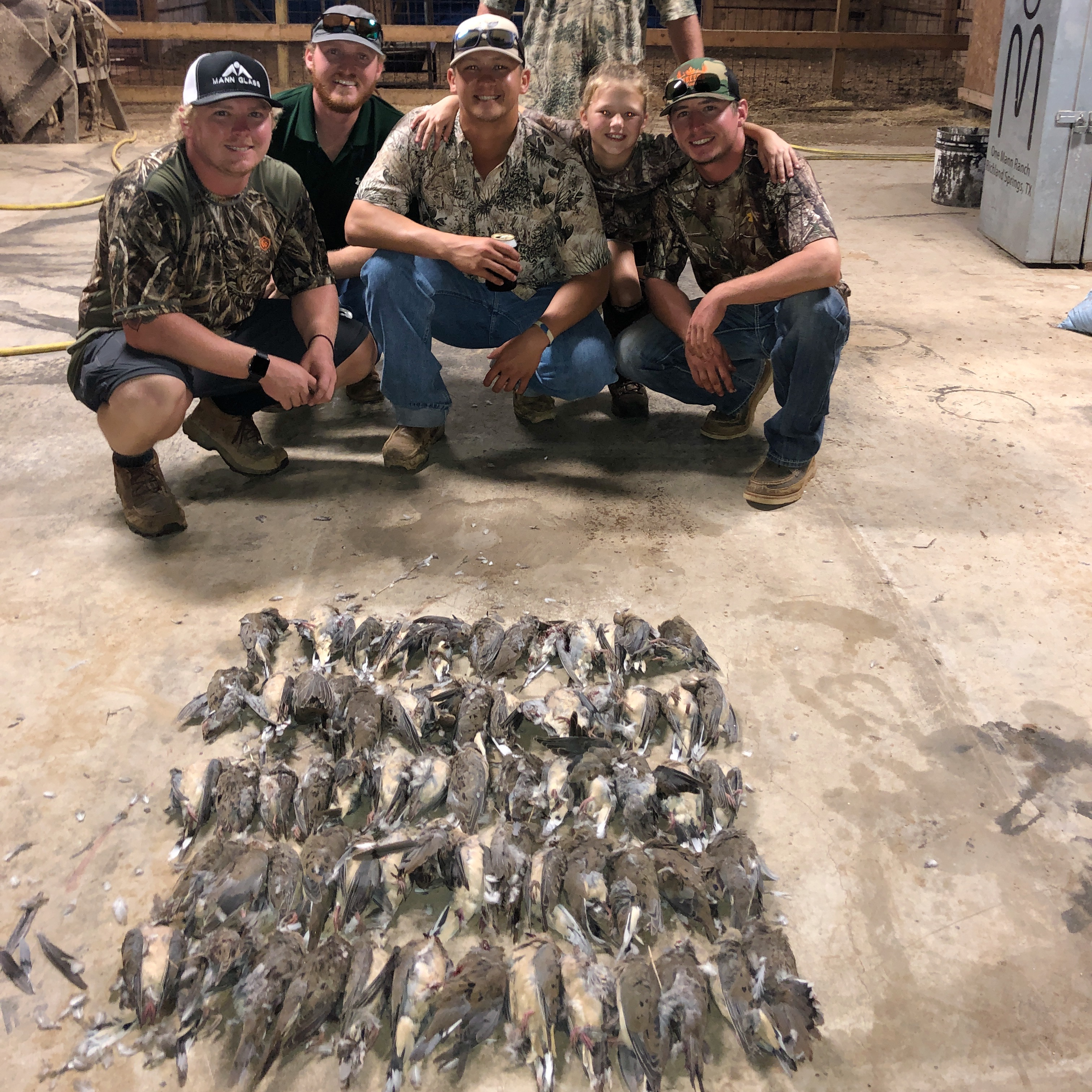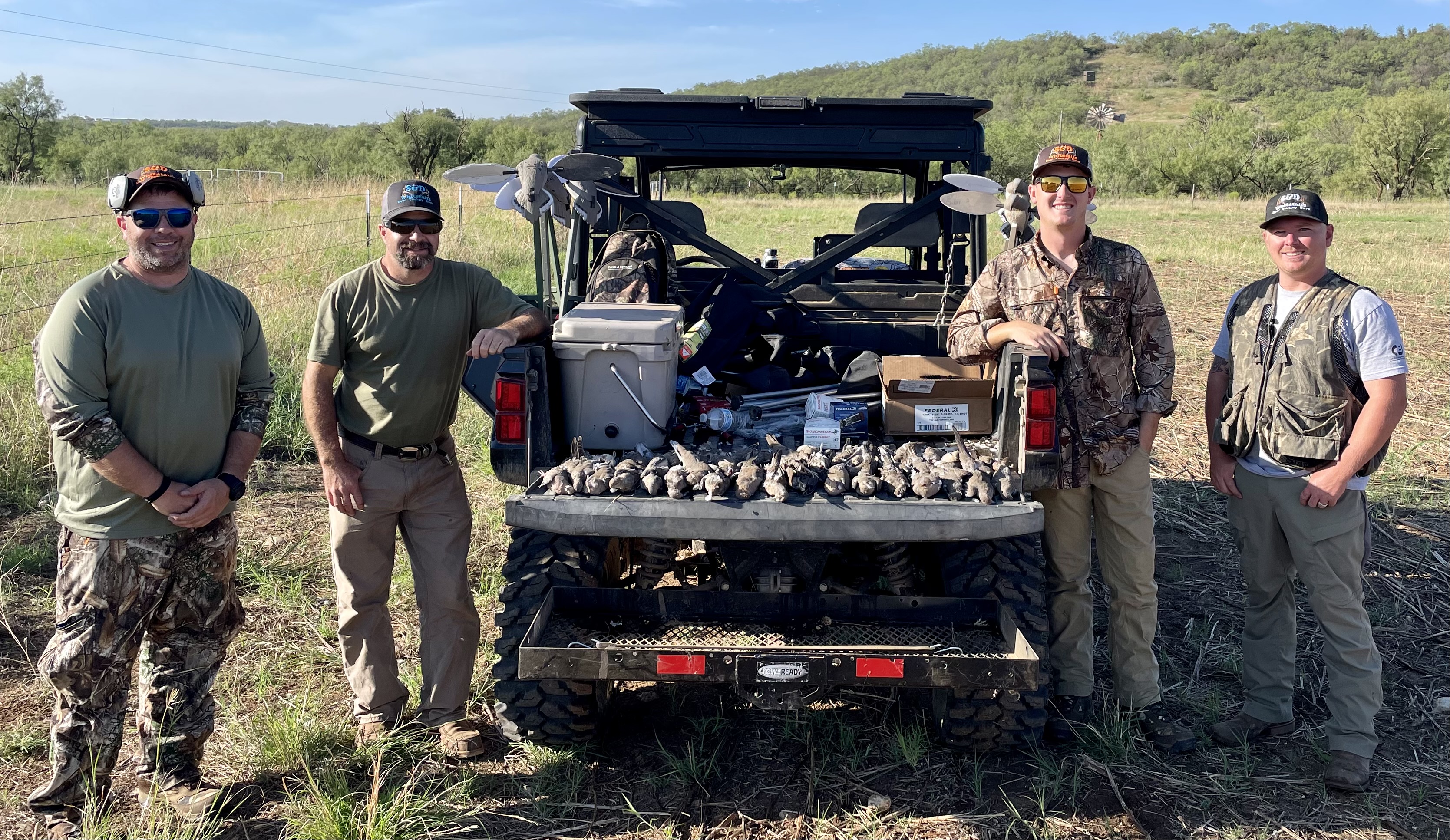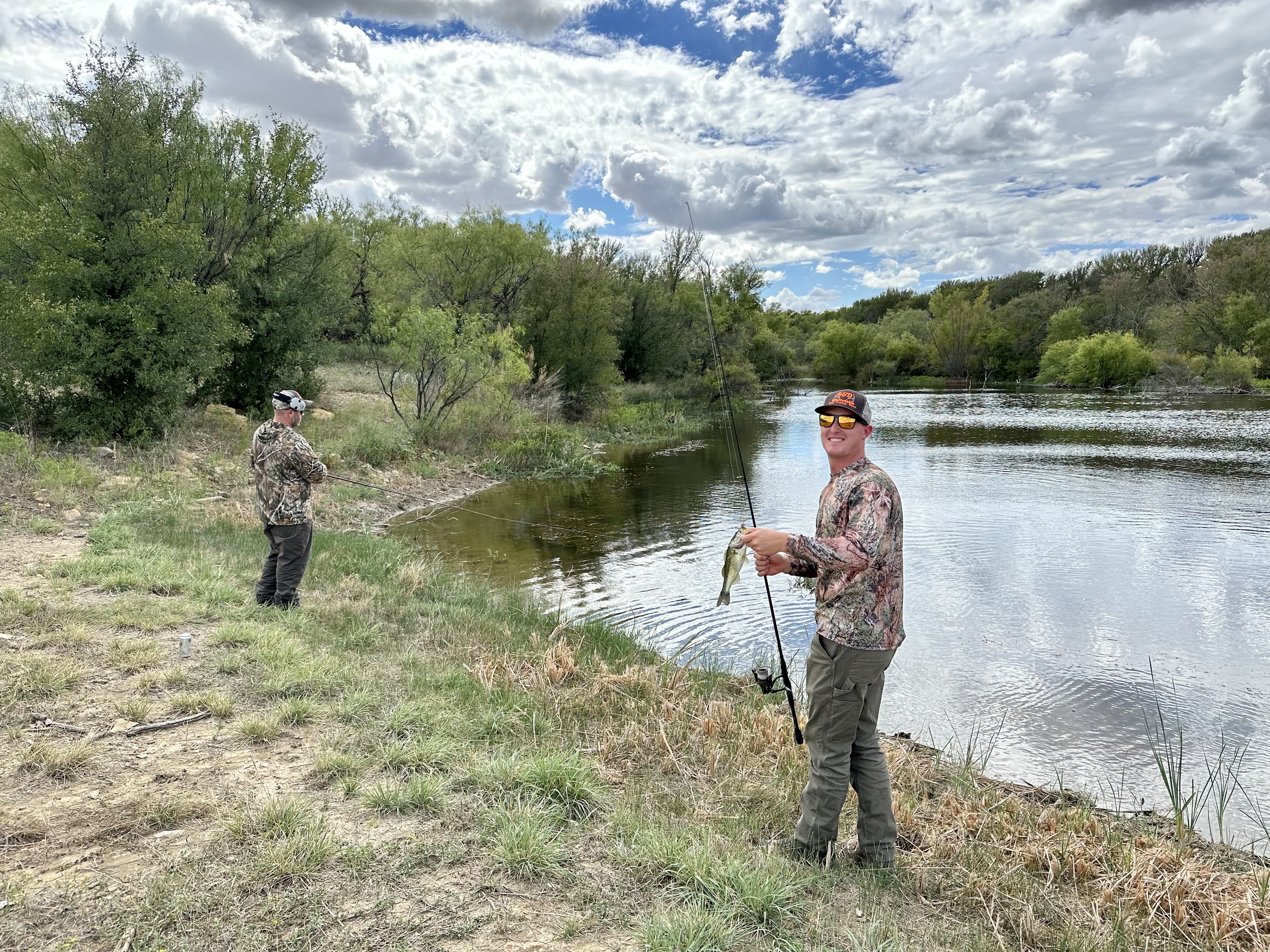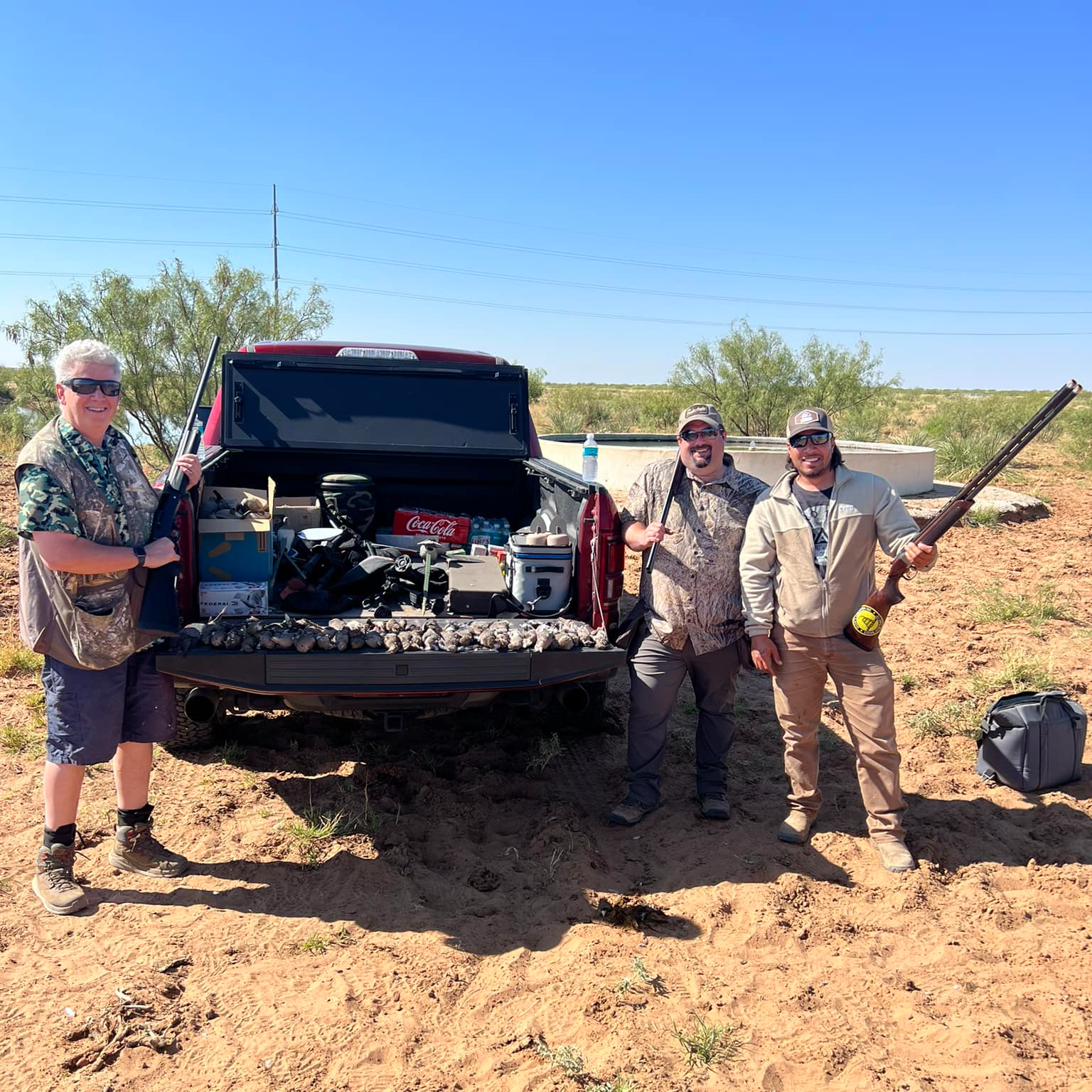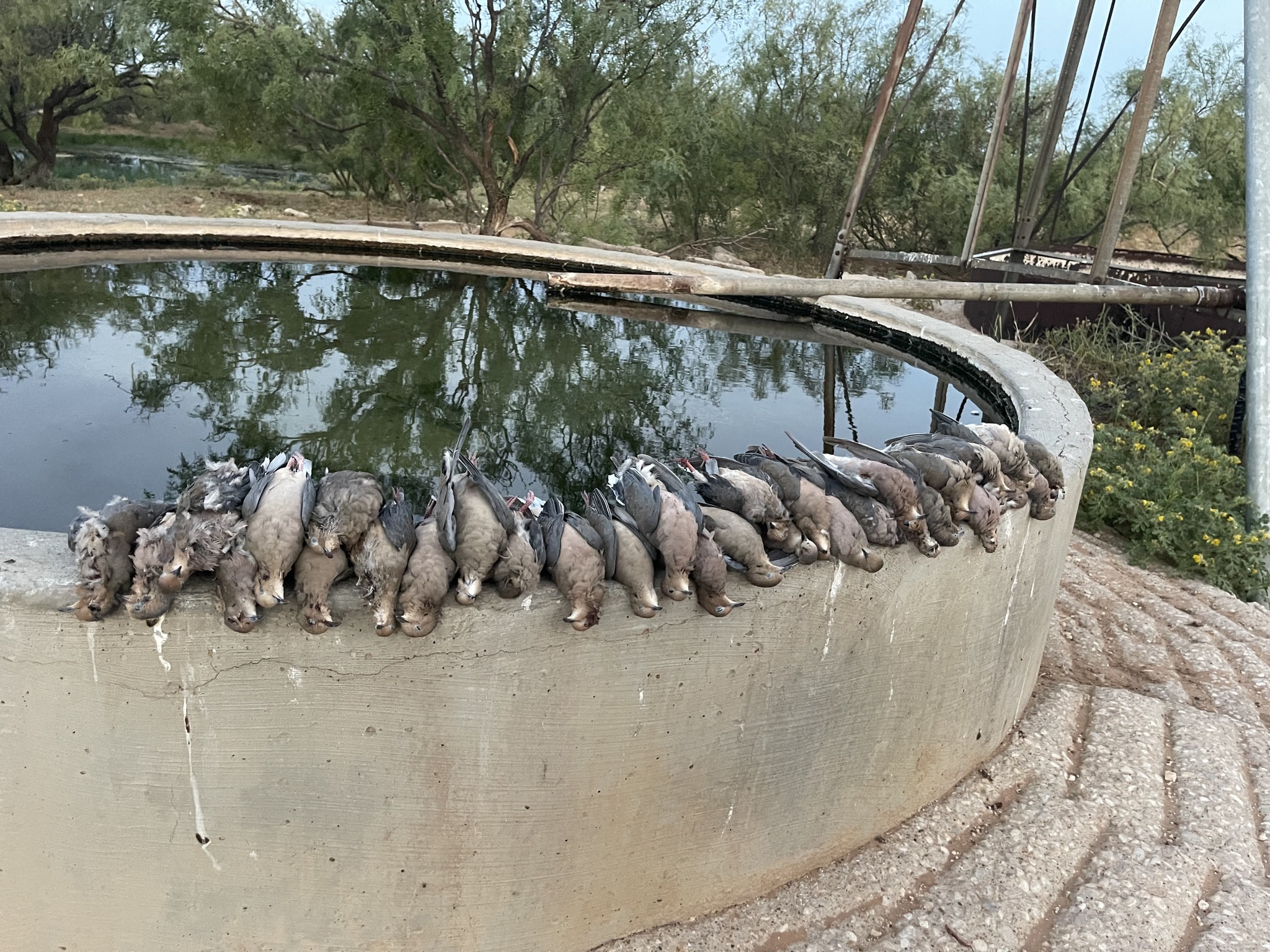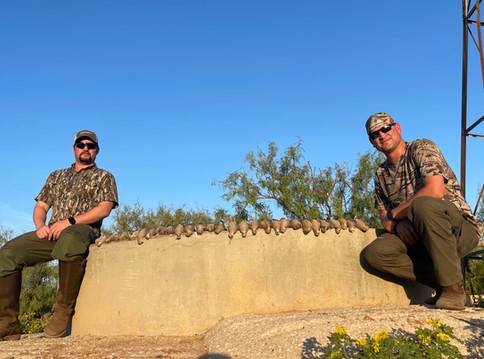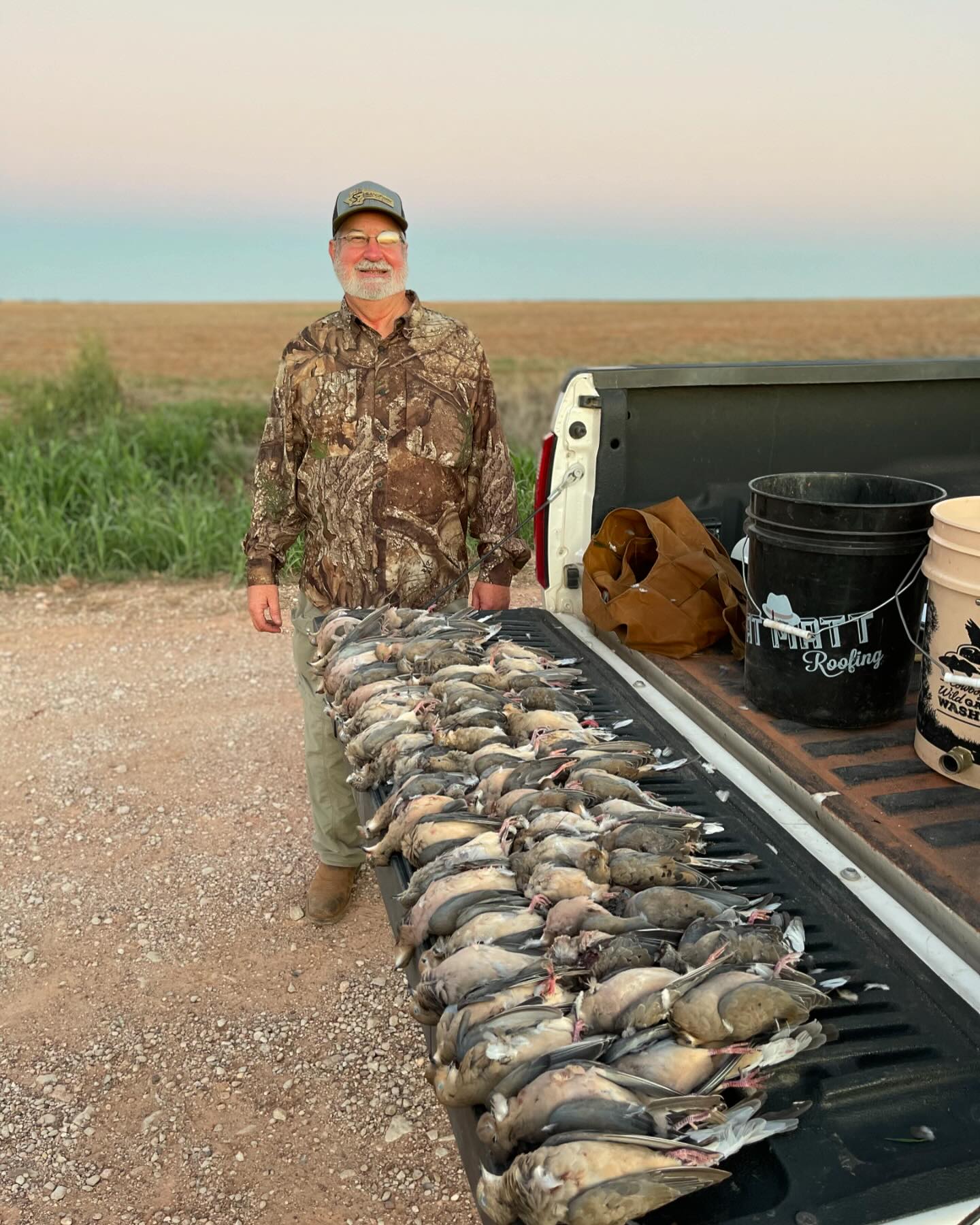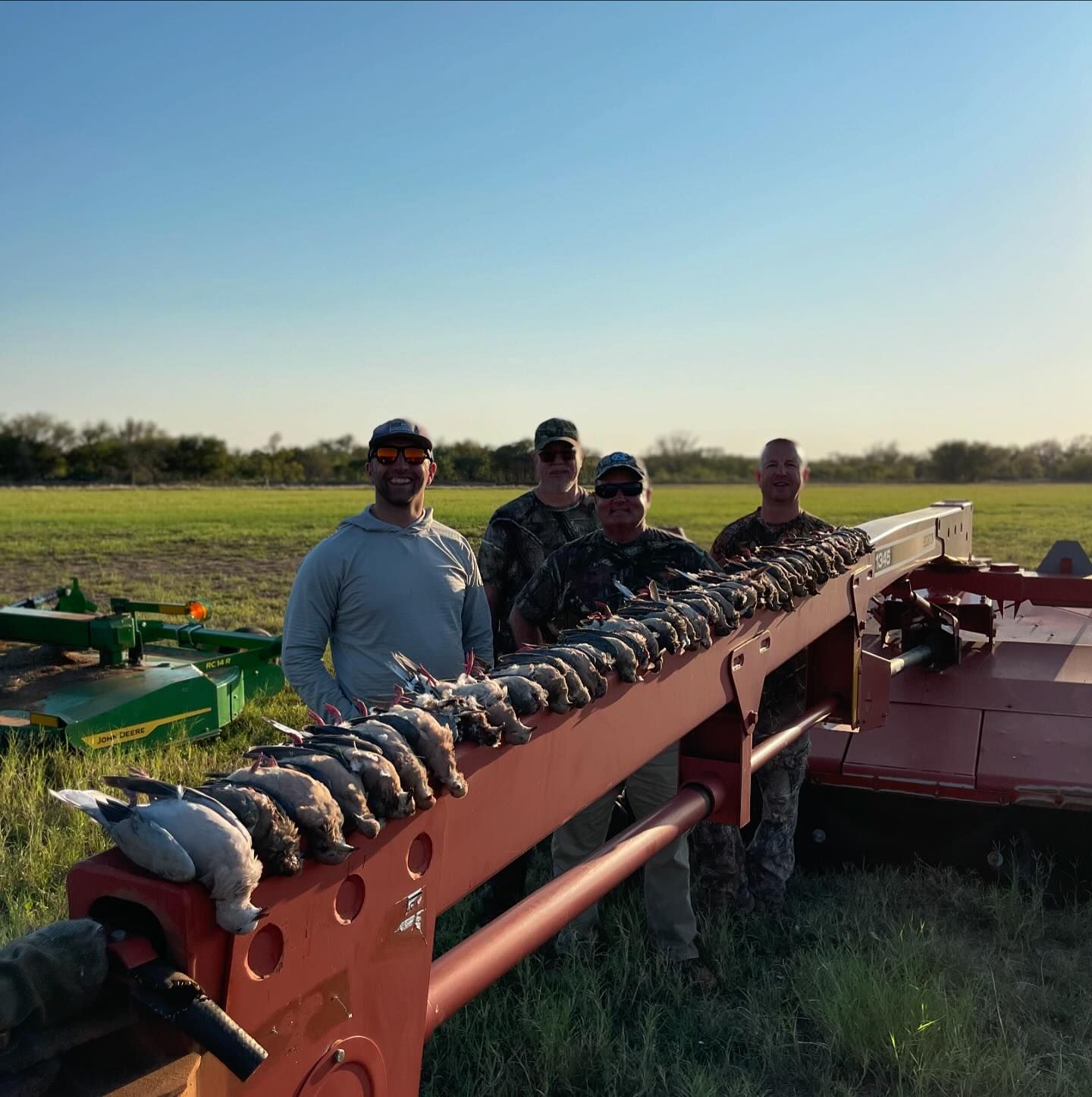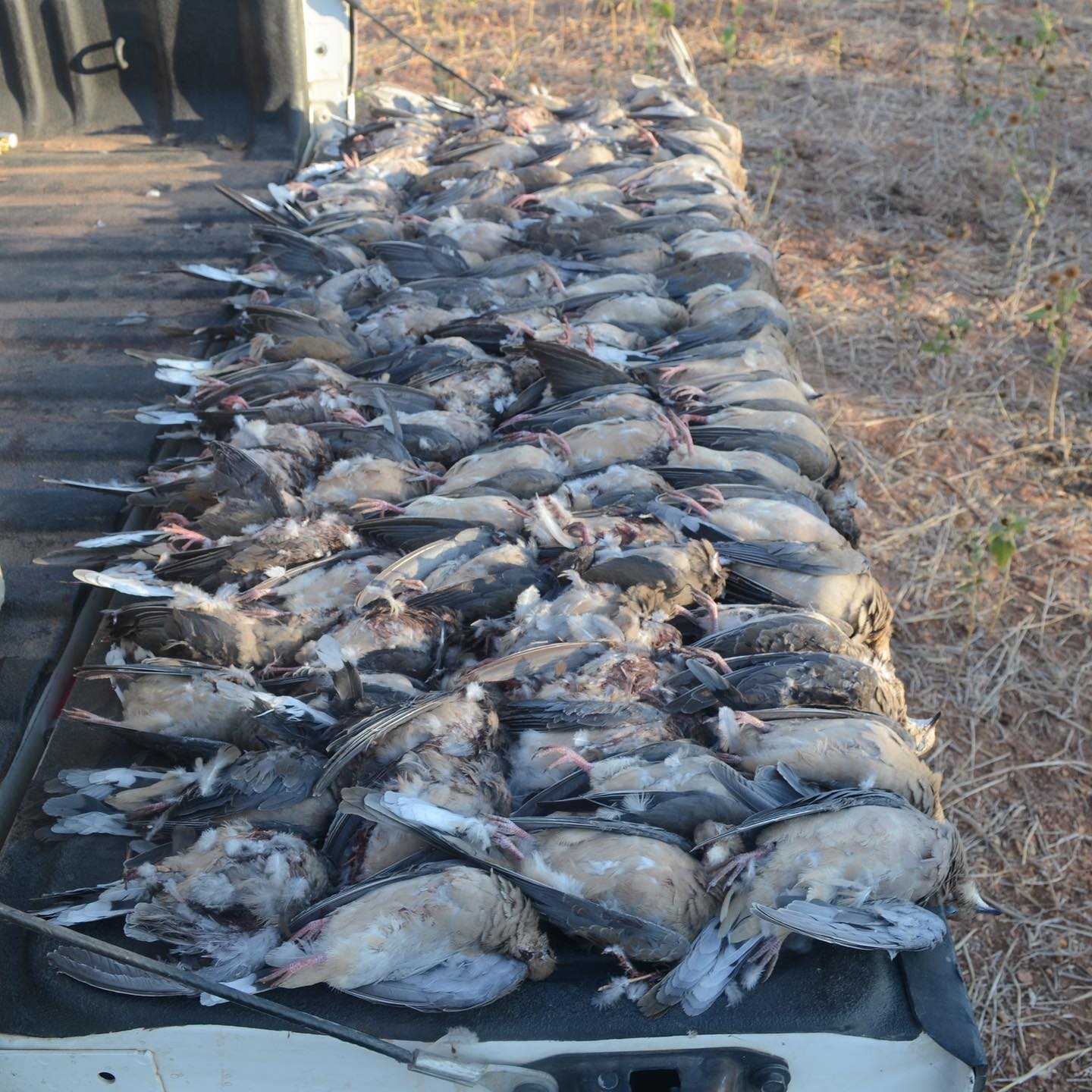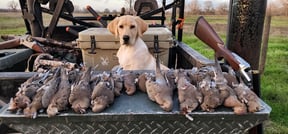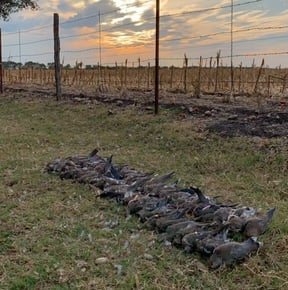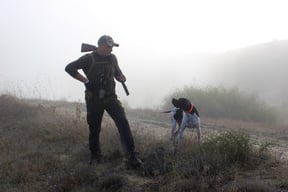Cast & Blast in South Padre Island
DOVE Cast And Blast
Dove Hunting in South Padre Island
White Wing Dove Hunting
North Texas Dove Hunting
Hondo, TX Dove Hunt
Dove Hunt Central Texas (Weekdays)
West Texas Dove Hunts
Dove Hunting in Richland Springs
Richland Springs Dove Hunts
Invasive Species, Dove Hunting in Richland Springs
All Inclusive 3 Day Dove Hunt
West Texas Weekend Dove Hunting
Abilene Dove Hunting
We started Captain Experiences to make it easy to book fishing and hunting guides around the world. With over 2,000 Damn Good Guides, our platform makes finding and booking a trip seamless. Head here to check out our trips.
How to Choose A Shotgun For Dove Hunting
Dove hunting is the perfect start to the hunting season for many hunters, offering an exciting way to dive back into shooting for the year (and get back into practice). One of the keys to success lies in choosing the right shotgun, which can greatly enhance your accuracy and overall experience. In this guide, we'll explore the factors to consider when selecting the best dove hunting shotgun.
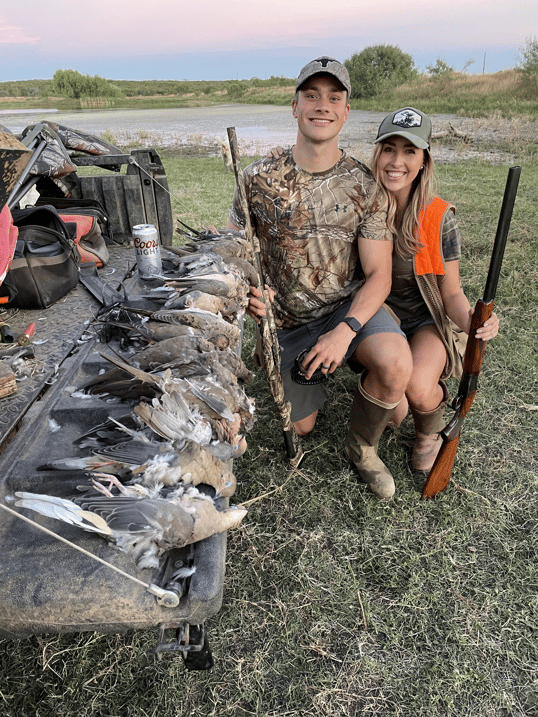
Gauge
The gauge of a shotgun refers to the diameter of its barrel, and it's one of the first decisions you'll need to make. For dove hunting, the most popular choices are 12-gauge and 20-gauge shotguns.
12-Gauge: Offers a larger spread and more power, making it ideal for hunters who want to maximize their chances of hitting fast-moving doves. However, it also comes with more recoil. Many hunters use a 12-gauge if they already have one for other species like ducks, geese, or turkey.
20-Gauge: Lighter and easier to handle, the 20-gauge is perfect for hunters who prioritize comfort and maneuverability, especially during long hunts. It's a great option for beginners or those who may be sensitive to recoil, or for those who want to remain more firmly entrenched in the upland bird space (a 12 gauge can be used for dove, but a 20 gauge is harder, but not impossible, to use for ducks).
Recommendation: For most hunters, the 20-gauge shotgun strikes a good balance between power and ease of use while also not overpowering the small birds. This makes a 20 a versatile choice for dove hunting, but if all you have is a 12 and you want to get out there, nothing wrong with that.
Action
The action type determines how the shotgun loads, fires, and ejects shells. There are three main types to consider:
Pump-Action: Known for its reliability, a pump-action shotgun requires the shooter to manually pump the forearm to chamber a new round. It’s a fine choice for new hunters or for cheaper guns, but its not used as commonly in duck hunting. Many a kid starts with a pump action as their first shotgun.
Semi-Automatic: A semi-automatic shotgun automatically chambers the next round after each shot, allowing for quicker follow-up shots. This can be crucial when targeting fast-moving doves, but semi-automatics can be more expensive and require more maintenance.
Over/Under or Side by Side (Double Barrel): These shotguns feature two barrels stacked vertically, allowing for two quick shots before needing to reload. They’re often prized for their balance and simplicity but can be heavier and less versatile than other options. They are commonly used for other upland bird hunts but can be tougher for dove where the shots come quicker and more frequently.
Recommendation: For dove hunting, a semi-automatic shotgun offers a good mix of speed and convenience, allowing for multiple shots without the need to manually chamber each round.
Barrel Length
The length of the shotgun barrel influences both the weight and the swing of the firearm.
Longer Barrels (28-30 inches): Provide a smoother swing, which is helpful for tracking and shooting doves in flight. However, they can be heavier and harder to maneuver in dense cover.
Shorter Barrels (24-26 inches): Easier to carry and quicker to point, making them ideal for hunters who need to react quickly. They may not provide the same level of stability as longer barrels but are highly effective for close-range shooting.
Recommendation: A barrel length of 26 to 28 inches is a good compromise, offering a balance between swing and maneuverability.
Choke
Choke tubes control the spread of the shot as it leaves the barrel, and they are critical for adapting to different hunting situations.
- Improved Cylinder: Offers a wider spread, ideal for close-range shooting.
- Modified Choke: Provides a tighter spread, making it effective for longer shots.
- Full Choke: Produces the tightest spread, suitable for shooting at doves that are farther away.
Recommendation: For dove hunting, an improved cylinder or modified choke is typically the best choice, as doves are often shot at varying distances.
Weight & Fit
The weight of the shotgun plays a significant role in comfort during long hunts, and with dove hunting you'll (hopefully) be shooting a fair amount during the day. A lighter shotgun is easier to carry but may produce more recoil, while a heavier one offers better recoil absorption but can cause fatigue. You should also consider how the gun aligns with your line of vision when you pull it to your shoulder.
Recommendation: Choose a shotgun that feels comfortable in your hands and is well-balanced, and that you can comfortably carry and mount quickly to your shoulder. A shotgun that is too front-heavy or back-heavy can affect your ability to shoot accurately. Visit a local gun shop to try out different models and find the one that feels the most natural and comfortable in your hands.
Brand & Budget
Finally, consider your budget and brand preferences. Well-known brands like Beretta, Remington, and Browning offer reliable and high-quality shotguns, but there are also great options from other manufacturers. Decide on a budget and explore the best options within that range.
Recommendation: While it’s tempting to go for the most expensive model, many mid-range shotguns offer excellent performance and value for money. Focus on what feels right for you rather than just the price tag.
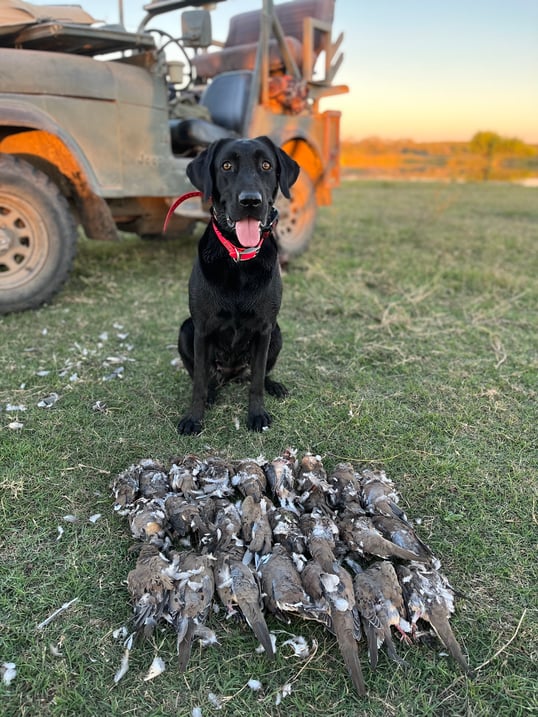
Now get out there and show those dove what you're made of!
Jake Lane
Updated on August 27, 2024
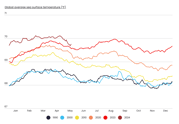
November 15, 2023

April 26, 2022

August 21, 2023
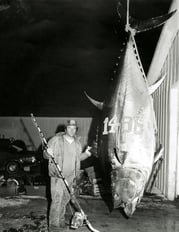
June 3, 2021

June 22, 2022
Related Articles
July 30, 2024
June 27, 2022
June 27, 2022
Featured Locations
- Fishing Charters Near Me
- Austin Fishing Guides
- Biloxi Fishing Charters
- Bradenton Fishing Charters
- Cabo San Lucas Fishing Charters
- Cancun Fishing Charters
- Cape Coral Fishing Charters
- Charleston Fishing Charters
- Clearwater Fishing Charters
- Corpus Christi Fishing Charters
- Crystal River Fishing Charters
- Dauphin Island Fishing Charters
- Daytona Beach Fishing Charters
- Destin Fishing Charters
- Fort Lauderdale Fishing Charters
- Fort Myers Fishing Charters
- Fort Walton Beach Fishing Charters
- Galveston Fishing Charters
- Gulf Shores Fishing Charters
- Hatteras Fishing Charters
- Hilton Head Fishing Charters
- Islamorada Fishing Charters
- Jacksonville Fishing Charters
- Jupiter Fishing Charters
- Key Largo Fishing Charters
- Key West Fishing Charters
- Kona Fishing Charters
- Lakeside Marblehead Fishing Charters
- Marathon Fishing Charters
- Marco Island Fishing Charters
- Miami Fishing Charters
- Montauk Fishing Charters
- Morehead City Fishing Charters
- Naples Fishing Charters
- New Orleans Fishing Charters
- New Smyrna Beach Fishing Charters
- Ocean City Fishing Charters
- Orange Beach Fishing Charters
- Panama City Beach Fishing Charters
- Pensacola Fishing Charters
- Pompano Beach Fishing Charters
- Port Aransas Fishing Charters
- Port Orange Fishing Charters
- Rockport Fishing Charters
- San Diego Fishing Charters
- San Juan Fishing Charters
- Sarasota Fishing Charters
- South Padre Island Fishing Charters
- St. Augustine Fishing Charters
- St. Petersburg Fishing Charters
- Tampa Fishing Charters
- Tarpon Springs Fishing Charters
- Venice Fishing Charters
- Virginia Beach Fishing Charters
- West Palm Beach Fishing Charters
- Wilmington Fishing Charters
- Wrightsville Beach Fishing Charters
